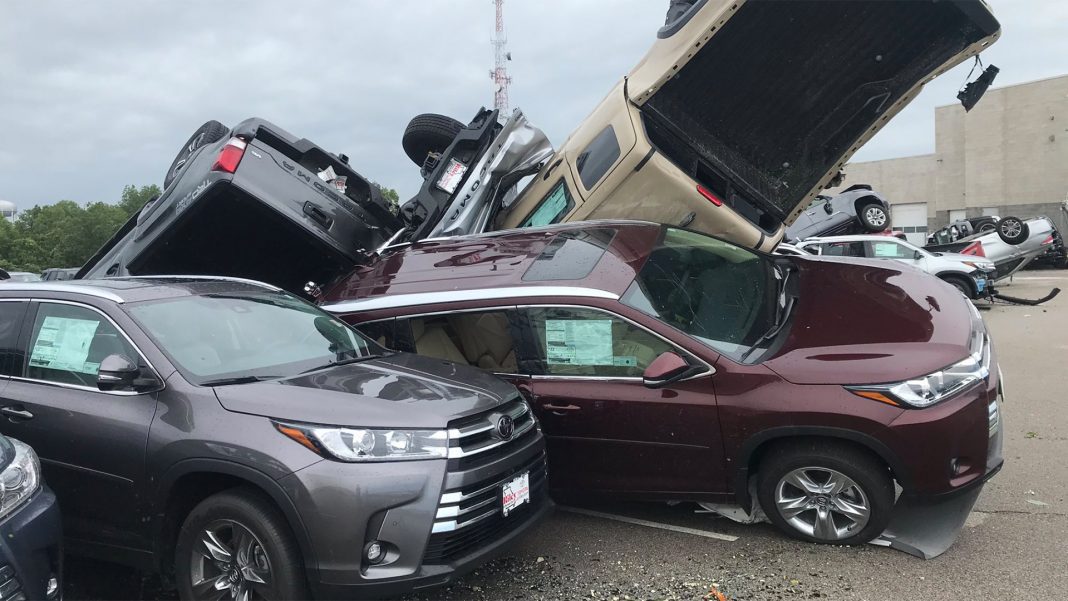Hurricane Ida swept across many Gulf Coast states through the northeast leaving a path of destruction, displacements, and power outages in its wake. Storms continue to hit the southern states and beyond, with many companies in subsequent flash flooding, resulting in billions of dollars in damages.
The impact on the automotive supply chain and various players in the industry is serious – regardless of whether those players are looking to buy or sell vehicles, rent out cars, transport vehicle inventory, or use fleet units to conduct another form of business. Additionally, all these storm-related challenges add even more supply chain disruptions to an already-burdened auto industry grappling with ongoing coronavirus pandemic concerns, strained carrier capacity, high fuel prices, and widespread semiconductor chip shortage.
It’s important for auto logistics companies to take these new severe weather challenges seriously. Having teams closely monitor situations on the ground to provide regular updates to its carriers, drivers and customers are critical – making this type of around-the-clock service a necessity for this industry.
As a direct result of Hurricane Ida and ongoing storms impacting many more parts of the country, companies are faced with identifying the major needs and obstacles in their way. And most importantly, there’s a crucial role auto logistics companies can play in their immediate and future success.
| Related: Chairwoman Annette Sykora discusses NADA’s Emergency Relief Fund to help dealers in need |
The Need to Reposition Inventory
Perhaps one of the most crucial needs companies are facing is the need to reposition inventory, moving it out of harm’s way and into safety. To prevent damage, many retailers and rental car companies are looking to transport vehicle inventory off their lots and into locations with more coverage from the storm’s many impacts. Fleet management companies, automakers, and other companies with fleets are also looking to move many of their units offsite and into more secure locations, away from the areas being hit the hardest.
Once storms and precarious weather conditions have moved on, logistics providers can then help companies – vehicle retailers in particular – replace their inventory and restock their lots again.
Preparation for Flash Flooding and Future Storms
Beyond just reacting to what is already happening on the ground in these storm-hit areas, companies must be prepared for any flash flooding that will occur because of these storms, as well as for any future hurricanes, tropical storms, or severe weather that might take place.

Many times, companies that have most of their vehicle inventory in low areas must start moving their vehicles to higher ground for risk mitigation, largely avoiding damages associated with flash floods.Many businesses will want extra protection for their vehicles, looking to transport inventory into more secure storage sites where vehicles can be monitored and held in insurance-covered facilities until they are ready to retrieve them.
Anticipation of Fuel Increases
Because so many refineries are in the southern United States, particularly along the coastal area, many in the automotive industry are anticipating significantly higher fuel-price increases in the days and weeks to come – even higher than what North America has seen in recent months. Such increases won’t just hit the storm-impacted states, however; these price hikes will impact states across the country.
Companies that regularly transport vehicles will want to take rising fuel costs into consideration as they make plans for the near future and account for various expenses impacting their respective businesses. In some cases, dealerships, rental companies, and other companies may decide there is more value and overall cost savings in outsourcing services like car haul or drive away to a logistics provider than taking on all those costs and resource-intensive operations themselves.
Did you enjoy this article from Paul Malone? Please share your thoughts, comments, or questions regarding this topic by submitting a letter to the editor here, or connect with us at newsroom@cbtnews.com.
Be sure to follow us on Facebook and Twitter to stay up to date or catch-up on all of our podcasts on demand.
While you’re here, don’t forget to subscribe to our email newsletter for all the latest auto industry news from CBT News.










